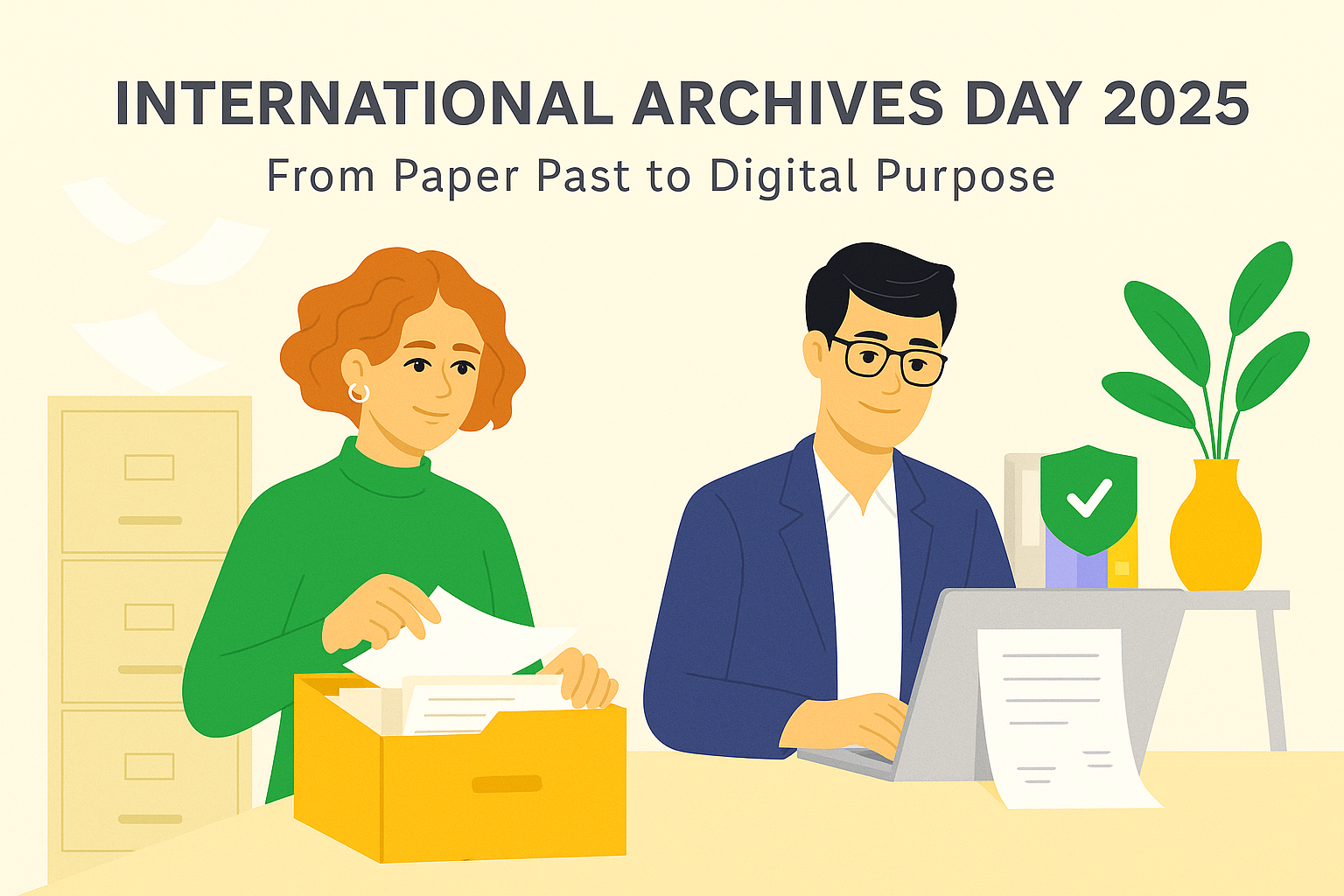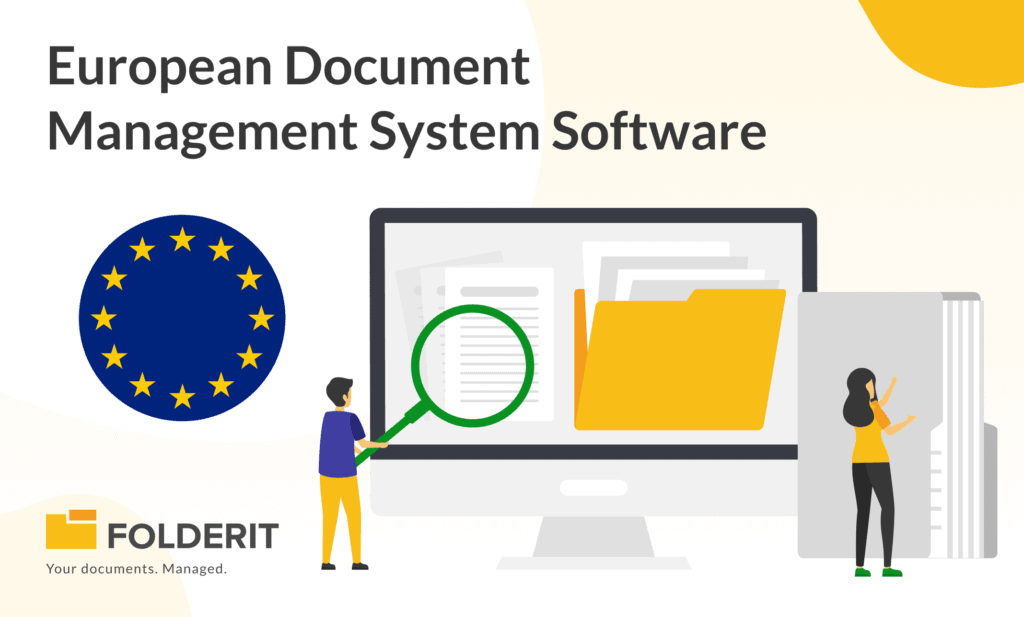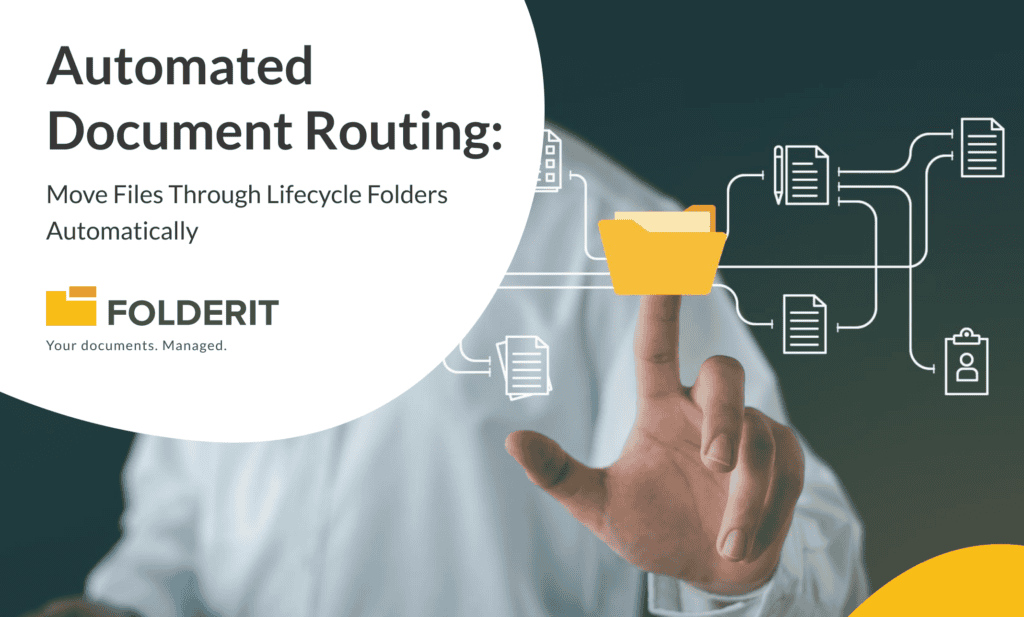June 9th marks International Archives Day 2025 — a day that might not pop up on most calendars, but one that sits quietly at the heart of accountability, memory, and progress.
Whether you’re managing public records, corporate documentation, or a startup’s growing knowledge base, archives are more than dusty backrooms or labeled folders. They’re proof. They’re policy. And increasingly, they’re digital.
At Folderit, we celebrate this day not only as a nod to history, but as a reminder of where organizations are going — and how digital archives can be a foundation for clarity, continuity, and control.
What Are Archives, Really?
It’s easy to think of archives as static — things stored away and forgotten. But archives are more than just storage. They’re living records of decisions, agreements, designs, operations, and obligations.
They serve governments in ensuring transparency. They support companies in resolving disputes and proving compliance. They allow researchers, journalists, and citizens to trace truth over time.
Traditionally, archives have lived in folders and filing cabinets. But in 2025, the very nature of archives is changing. Permanence now meets searchability. Integrity now pairs with automation. And access is no longer bound by geography or office hours.
Why International Archives Day Still Matters
Established by the International Council on Archives, International Archives Day aims to raise awareness about the importance of preserving and managing records. Each year, institutions around the world share stories of historical archives, new digitization efforts, and innovative methods of managing information over time.
But this isn’t just a day for national libraries or public institutions.
Private companies, NGOs, healthcare providers, schools — everyone deals with documentation that must be retained, accessed, and protected.
Celebrating this day is really about recognizing the role that information integrity plays in modern operations. It’s about asking: Are we keeping what matters? Can we find it when we need it? Can we trust that it’s accurate, untouched, and preserved properly?
From Paper to Platform: How Archiving Has Evolved
Ten years ago, archiving usually meant putting files in a locked cabinet or maybe dragging old data to a cold storage server.
Today, that approach isn’t just outdated — it’s risky.
Modern archiving is:
- Automated: Retention schedules trigger without manual follow-up.
- Searchable: Metadata and full-text OCR allow you to find the right document in seconds.
- Secure: Access is tracked, permissions are granular, and files can be watermarked or encrypted.
- Compliant: Documents are handled in accordance with regulatory standards like ISO 27001, GDPR, HIPAA, and industry-specific frameworks.
- Integrated: Files aren’t “archived away” — they’re part of a living system that works with your workflows.
This isn’t just a convenience. It’s essential in a time where audits, investigations, and operational reviews can reach back years, across teams, jurisdictions, and systems.
The Role of EDMS in Modern Archiving
An electronic document management system (EDMS) like Folderit doesn’t replace the archive — it becomes it.
When your workflows, file versions, retention rules, and approvals all live in one secure environment, you don’t need a separate process for archiving. It happens automatically, with consistency and control.
You set the rules. The system enforces them.
Whether you’re managing engineering records that need to be kept for 15 years, HR files subject to data protection regulation, or supplier contracts with custom lifecycles — a smart EDMS turns archiving from a chore into a built-in safeguard.
Archives Are Not Just for the Past — They’re for the Future
There’s something deeply strategic about well-kept archives.
They allow organizations to:
- Prove what happened, and when
- Protect institutional memory across leadership changes
- Make decisions with full historical context
- Respond quickly to legal or regulatory questions
- Avoid duplication and wasted effort
As AI and automation take over more tasks, one thing remains true: decisions are only as good as the records that support them.
That’s why digital archiving — done right — is a future-focused move.
Celebrating the Day — and the Discipline
This International Archives Day, we’re not just looking back. We’re looking at the systems, policies, and tools that help organizations do their best work — transparently and accountably.
Whether you manage records for a municipality, a manufacturing plant, a research lab, or a nonprofit, this day is a reminder that what we store and how we manage it matters deeply.
Good archives don’t just protect information. They enable action.
Let’s Keep What Matters
At Folderit, we believe document management and archiving aren’t just technical checkboxes — they’re core to how modern organizations function. On this day, we celebrate those who care enough to preserve, structure, and protect the record of what matters.
Because in a world of constant change, keeping the right things — and knowing where they are — is power.





